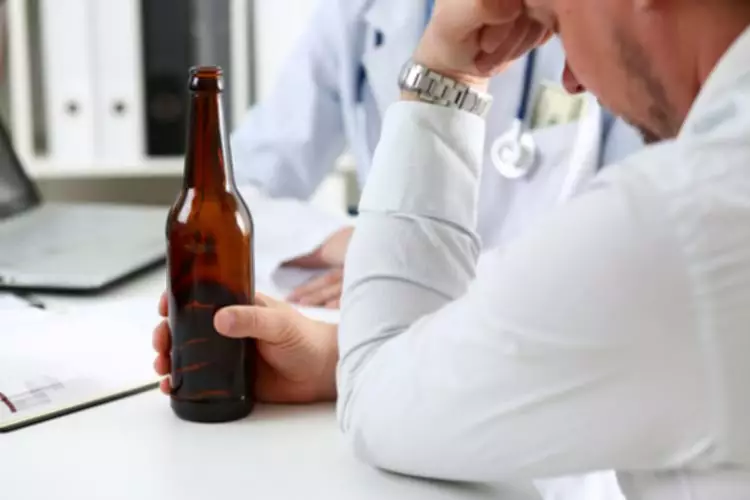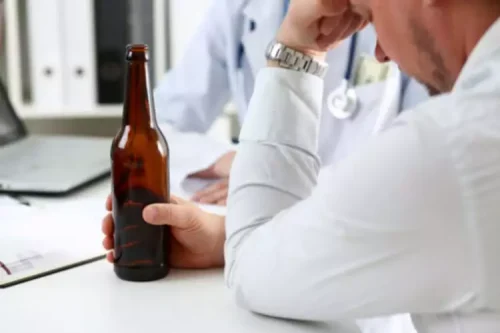
Certified addiction specialists can guide your recovery and relapse prevention journey. Surround yourself with a strong support system of friends, family, and sober acquaintances. Additionally, join local recovery meetings to interact with peers in similar situations. Practicing mindfulness also aids in dealing with triggers without using substances. It helps you break free from unhelpful thought https://ecosoberhouse.com/ patterns and focus on healthier alternatives for managing stress. Whether you or a loved one are experiencing challenges controlling their addictive behaviors, the road toward rebuilding self-control can be overwhelming.

Regularly review your plan
Before discussing prevention, it is useful to understand the nature of relapse. Remaining committed to your recovery journey is key to preventing relapses and upholding long-term sobriety. This commitment involves continuously learning new skills, building resilience, and adapting to the challenges that may arise during your recovery journey. High-risk situations can considerably increase the probability of relapse, hence it’s crucial to recognize and handle them effectively. By constructing a plan for evading high-risk circumstances, you can decrease the likelihood of physical relapse and remain focused on your recovery objectives. It’s important to remember that building effective coping mechanisms is a gradual process that requires ongoing effort and dedication.
What is Relapse Prevention?
Remembering the negative effects using had on aspects of their life, such as their relationships, work, or studying, may also help. It is also important to find ways to deal with stress that don’t involve relying on alcohol, substances, or harmful behaviors. Stress relievers that might help you manage acute and long-term stress include yoga, deep breathing, meditation, and mindfulness practices. Getting appropriate treatment for co-occurring mental health and medical conditions can also help reduce your risk of relapse. This approach helps people in recovery anticipate the factors that might cause them to engage in their addictive behavior again—and to plan ahead for these situations.
How Do You Make A Relapse Prevention Plan?

Recovery is an ongoing process, so having the right tools can help you manage addiction or mental health conditions. Write down which substance or substances you use and your reasons for wanting to stop. This might include reasons such as wanting to be more in control of your mental health, wanting to rebuild relationships that have been harmed by substance use, or wanting to progress in your career. One of the biggest fears for many individuals in recovery is the possibility of relapse. Fortunately, there are many strategies that can help individuals in recovery prevent relapse. With our limited coping skills, failure to employ an alternative plan, and unwillingness to talk to anyone, we increase the risk of going back to our old behavior.

- They also provide counseling services to teach healthier coping strategies for stress and negative emotions.
- Our comprehensive guide outlines relapse prevention planning’s key components and practical steps for creating and implementing an effective plan.
- About half of people recovering from an SUD eventually return to using within 12 weeks of completing intensive inpatient programs that may last 4–12 weeks or more.
- Others notice your thought processes through your behaviors and actions, which tells them you are heading toward drug use again.
- If you’re a support group member, keep trusted group members or leaders’ information in your prevention plan.
By recognizing and addressing triggers, you can take control of your recovery journey and minimize the risk of relapse. Knowing these triggers and high-risk situations is critical to avoid relapse. Talk to your support system and healthcare providers about your personal triggers and how to manage them. Relapse Prevention (RP) strategies can vary significantly depending on the substance involved. Different substances present unique challenges and triggers, necessitating tailored approaches to ensure effective relapse prevention. Identifying personal triggers for relapse is the first step in developing an effective RP plan.
Step Programs

Triggers can be anything from people, places, or objects that remind you of substance use. It’s important to know which triggers might cause you to relapse and come up with strategies for managing them. Keep a note of your therapist’s phone number, emergency contacts, and a concrete action plan in case you relapse.
Health Challenges
Mental what is relapse, and give 3 skills for preventing it from happening. health professionals with expertise in addiction treatment can help people in every stage of relapse. There are several effective strategies to get back on track toward recovery. Additionally, maintaining social connections and building a support network through these activities can provide additional motivation and accountability for staying sober.
Drug Withdrawal: Causes, Symptoms, Timeline, and Treatment

By working together, you can create a plan that is both effective and sustainable in the long run. It’s important to identify your own stressors and develop healthy coping strategies, such as exercise, meditation, or deep breathing exercises. Practicing self-care and maintaining a healthy lifestyle can also help reduce stress levels. Additionally, seeking professional help or attending support groups can provide additional tools and resources for managing stress. Self-care is a critical component of addiction recovery because it promotes physical and mental well-being, reduces stress, and helps individuals stay focused on their goals.
- Wellspring Center for Prevention is a private nonprofit agency serving the community members and organizations of Middlesex and Monmouth Counties.
- The final stage is succumbing to temptation and engaging in drug or alcohol use again.
- In case of emergency, have a clear plan with proactive steps, such as calling a specific person, attending a support group meeting, or going to a safe place.
- Communication skills and the overall family dynamic may improve through family therapy as well.
The effort to choose your health and well-being every day is a great feat, so continue to reflect and pride yourself on your hard work. Clarity is an act of kindness, so be honest and straightforward in these conversations with your loved ones. You can frame the conversation around “I” statements to express your feelings and needs without blaming others.
